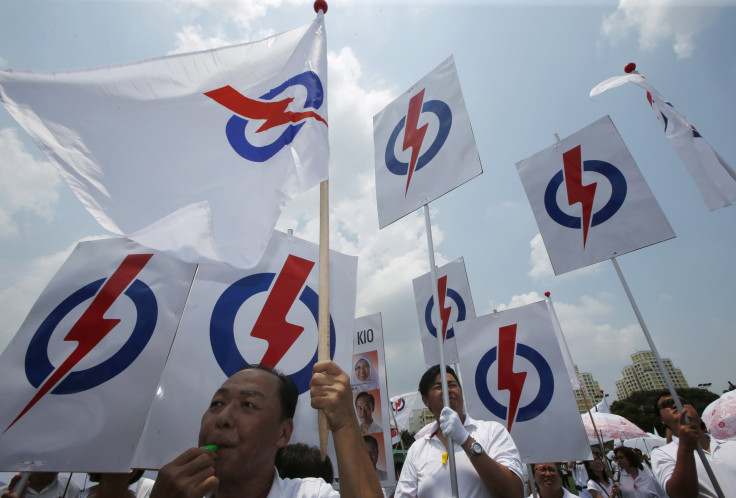Singapore Ruling Party For First Time Faces Election Fight For Every Seat

SINGAPORE (Reuters) - Singapore Prime Minister Lee Hsien Loong's ruling People's Action Party will face a fight from opposition candidates in all 89 parliamentary seats for the first time since independence 50 years ago, nominations showed on Tuesday.
Singapore goes to the polls on Sept. 11, more than a year before a deadline for the next election, with the government seen riding the feel-good factor of the wealthy city-state's 50th birthday last month amid slowing economic growth.
The PAP, co-founded by the Prime Minister's father, the late Lee Kuan Yew, has ruled Singapore since six years before independence in 1965.
The party is trying to improve its performance from 2011 when its share of vote fell due to unhappiness over then high housing prices, the cost of living and immigration.
Since then, the government has introduced curbs on foreign workers, measures to cool a red-hot property market and subsidized health-care cover for the elderly.
"This is about your future, vote seriously for the PAP to make sure that we can work together with you, for you, for Singapore," Lee said to waving party supporters in central Singapore after filing his nomination papers.
The candidates for the 16 group representation constituencies -- comprising four to six seats each -- and 13 single-member constituencies were confirmed at the close of nominations, state-owned Channel NewsAsia reported.
"We expect the PAP to remain in power, with the possibility of better performance, and arrest the fall in its popularity," said Nomura analysts said in a note to clients last week.
The election comes at a time when Singapore is seeing slowing growth. The government last month revised its official gross domestic product growth forecast for 2015 to 2.0-2.5 percent from 2-4 percent previously.
The legacy of Lee Kuan Yew, who died on March 23, will be fresh in the minds of voters and the PAP will be keen to convince people it is best placed to ensure Singapore's success over the next 50 years.
Lee drew praise for his market-friendly policies, but also criticism at home and abroad for his strict controls over the press, public protest and political opponents.
© Copyright IBTimes 2024. All rights reserved.




















